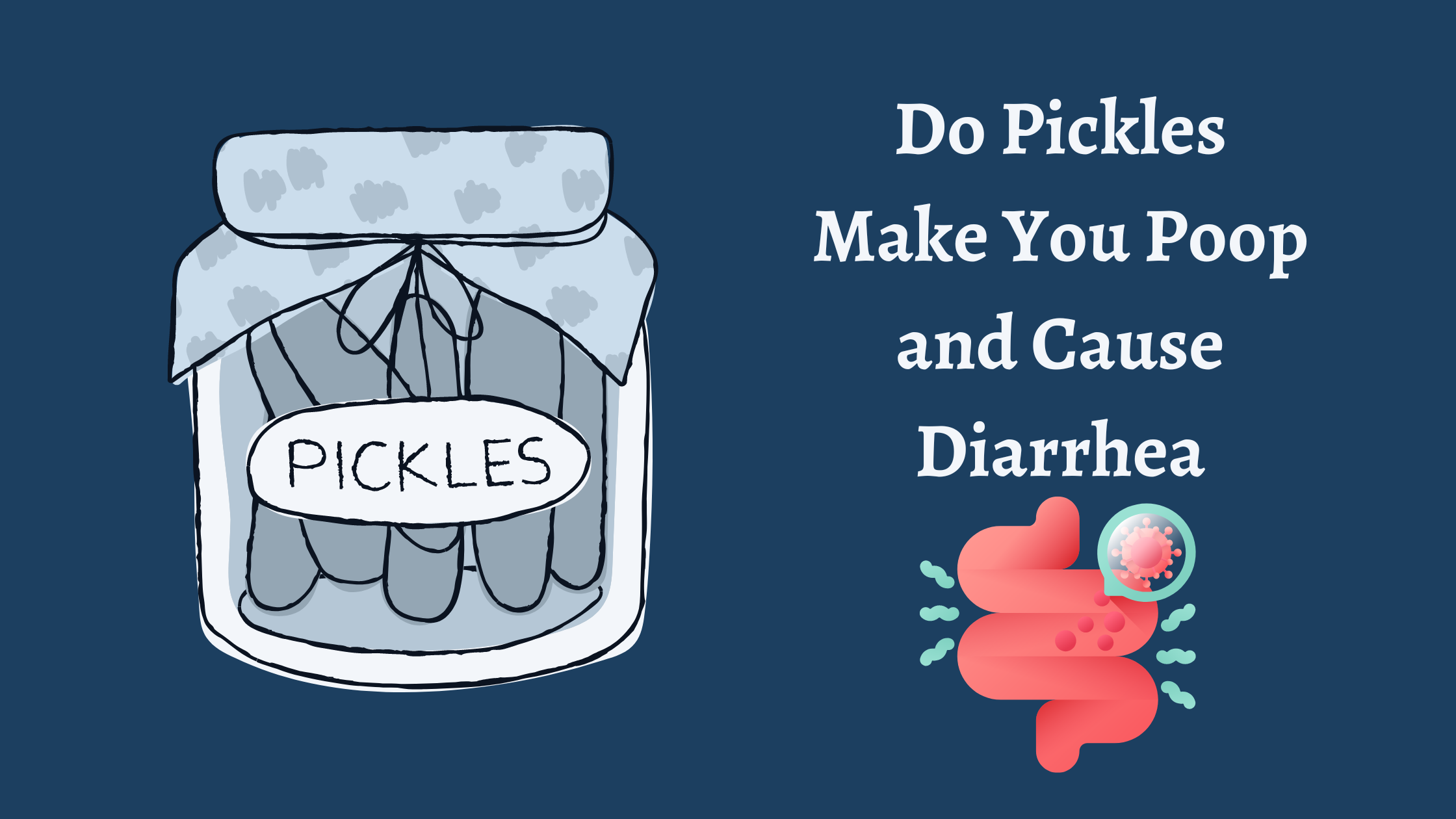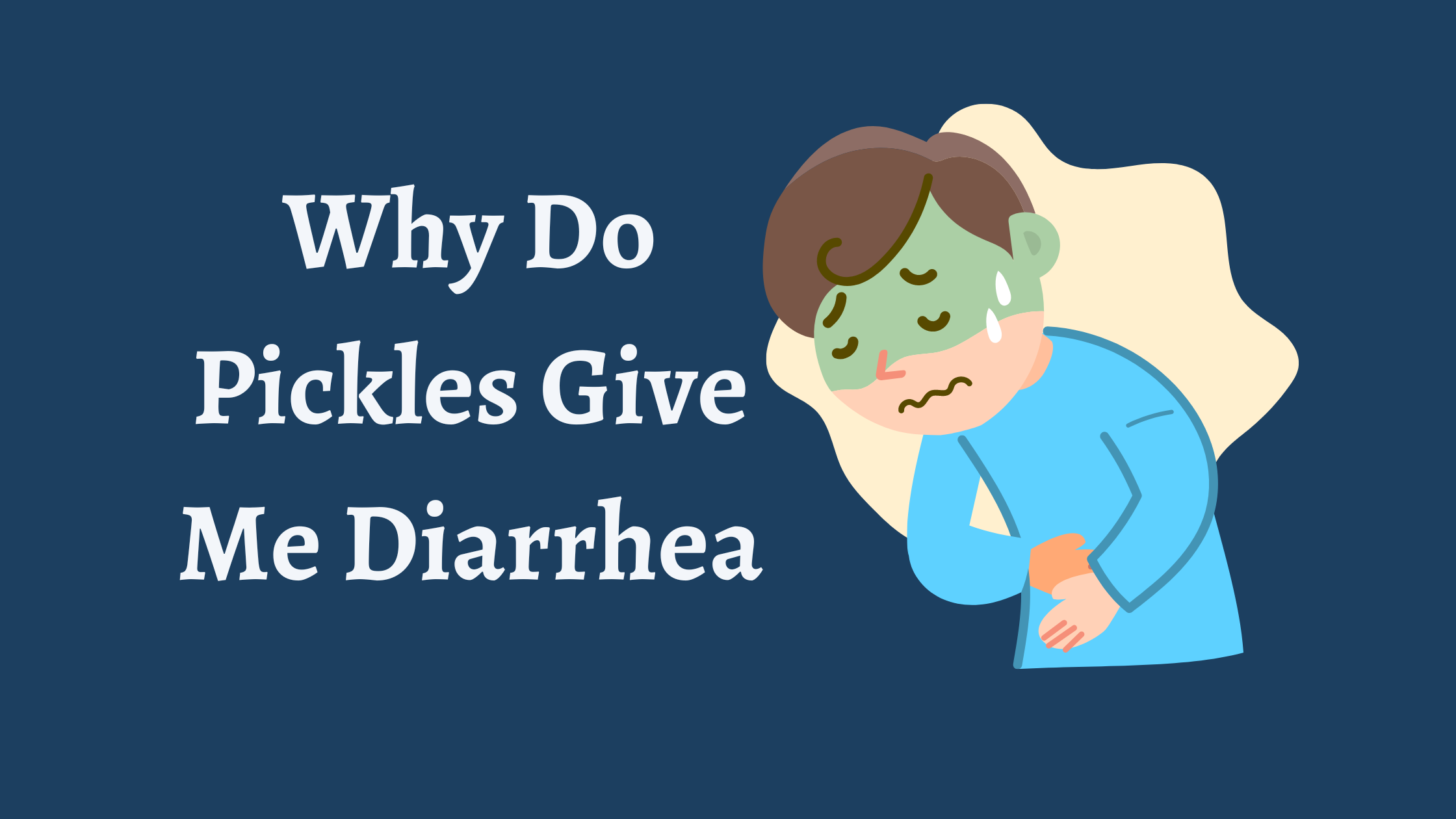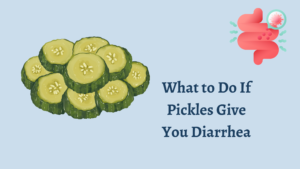
Pickles are a popular food item made from cucumbers that have been preserved in a brine solution, which typically includes vinegar, salt, and spices. They are enjoyed by people around the world as a tasty snack or a side dish, and they are also used in various recipes. However, some people have reported experiencing digestive issues after consuming pickles, such as diarrhea or increased bowel movements.
Do pickles make you poop and cause diarrhea? Yes, pickles make you poop and cause diarrhea. While pickles can help promote healthy digestion and regular bowel movements due to their high fiber and probiotic content, consuming too many pickles or eating them too quickly can sometimes cause diarrhea. This is because the high salt content in pickles can stimulate the bowels and lead to loose or watery stools.
In addition, consuming pickles that are contaminated with harmful bacteria, such as E. coli or Salmonella, can also cause diarrhea and other gastrointestinal symptoms. It is important to properly store and handle pickles to prevent contamination, and to avoid consuming pickles that are past their expiration date or have an off odor or appearance.
If you experience persistent diarrhea or other concerning symptoms after consuming pickles, it is recommended that you consult with a healthcare professional to determine the underlying cause and receive appropriate treatment.
In this article, we will explore whether pickles can indeed cause these issues and why they may occur. We will also provide tips on how to manage these symptoms if they occur.
Do Pickles Make You Poop?
One of the most common questions related to pickles and digestion is whether they can cause increased bowel movements or make you poop. The answer is yes, pickles can make you poop, but this is not necessarily a bad thing. In fact, consuming pickles may have a beneficial effect on your digestion, as they are rich in fiber and contain probiotics that can help promote healthy gut bacteria.
The fiber in pickles can help keep your digestive system regular by adding bulk to your stool and helping it move through your intestines more efficiently. Additionally, the probiotics in pickles can help maintain a healthy balance of bacteria in your gut, which can also promote regular bowel movements.
However, if you experience diarrhea or loose stools after consuming pickles, this may indicate that you are consuming too much salt or vinegar, which can irritate your digestive system. In some cases, consuming large amounts of pickles can also cause an electrolyte imbalance, which can lead to diarrhea and other digestive issues.
It is Normal Pickles Make You Poop?
Yes, it is perfectly normal for pickles to make you poop, as long as the bowel movements are not excessively frequent or accompanied by other symptoms like abdominal pain or cramping. If you are experiencing these symptoms after consuming pickles, it may be a sign of an underlying digestive issue, and you should consult with a healthcare professional.
Can Pickles Give You Diarrhea?
While it is normal for pickles to cause increased bowel movements, it is not normal for them to cause diarrhea or other digestive issues. If you experience diarrhea after consuming pickles, it may be a sign of an underlying digestive issue, such as irritable bowel syndrome (IBS) or inflammatory bowel disease (IBD). It could also indicate that you are consuming too much salt or vinegar, which can irritate your digestive system. In either case, it is recommended that you consult with a healthcare professional to determine the underlying cause of your symptoms.
Why Do Pickles Make Me Poop?
Pickles may make you poop for several reasons. As mentioned earlier, they are high in fiber, which can help promote regular bowel movements by adding bulk to your stool. Additionally, the probiotics in pickles can help maintain a healthy balance of gut bacteria, which can also promote regular bowel movements.
However, if you experience excessively frequent or urgent bowel movements after consuming pickles, it may be a sign of an underlying digestive issue, such as IBS or IBD. It could also indicate that you are consuming too much salt or vinegar, which can irritate your digestive system. In either case, it is recommended that you consult with a healthcare professional to determine the underlying cause of your symptoms.
Why Do Pickles Give Me Diarrhea?

If pickles give you diarrhea, it could be due to several factors. One possible cause is that you are consuming too much salt or vinegar, which can irritate your digestive system and lead to diarrhea. Another possible cause is that you have an underlying digestive issue, such as IBS or IBD, which can be aggravated by consuming pickles.
Additionally, some people may be sensitive to certain spices or additives commonly found in pickles, such as garlic or dill, which can also trigger digestive symptoms like diarrhea. In rare cases, pickles may be contaminated with harmful bacteria, which can cause food poisoning and diarrhea.
What to Do If Pickles Make You Poop?
If you experience increased bowel movements after consuming pickles, it is generally nothing to worry about, as this is a normal effect of the fiber and probiotics in pickles. However, if you find that you are having excessively frequent bowel movements or other digestive symptoms, you may want to try reducing your intake of pickles or avoiding them altogether for a period of time.
It is also important to stay hydrated when consuming pickles, as the high salt content can dehydrate you and potentially worsen digestive symptoms. Drinking plenty of water and other fluids can help keep your bowel movements regular and prevent dehydration.
What to Do If Pickles Give You Diarrhea?

If pickles give you diarrhea or other digestive symptoms, it is important to stay hydrated and replace any lost fluids and electrolytes. Drinking water, coconut water, or sports drinks can help replenish your body and prevent dehydration.
You may also want to try avoiding pickles for a period of time to see if your symptoms improve. If your symptoms persist or worsen, it is recommended that you consult with a healthcare professional to determine the underlying cause of your symptoms and develop a treatment plan.
How Fast Do Pickles Make You Poop?
The speed at which pickles make you poop can vary depending on several factors, such as the amount of pickles consumed, your individual digestive system, and whether you have any underlying digestive issues. Generally, pickles can take anywhere from a few hours to a day to produce a bowel movement.
Do Pickles Help with Constipation?
While pickles can help promote regular bowel movements, they may not be the best choice for relieving constipation. This is because pickles are high in salt, which can dehydrate your body and potentially worsen constipation.
Instead, it is recommended that you consume fiber-rich foods like fruits, vegetables, and whole grains, as well as drink plenty of water and other fluids to help promote regular bowel movements and relieve constipation.
Do Pickles Make Your Poop Smell?
The strong smell of pickles may linger in your digestive system and cause your poop to smell like pickles. This is generally nothing to worry about and is a normal effect of consuming pickles.
Frequently Ask Questions
Do Pickles Change Stool Color?
Pickles can sometimes change stool color, particularly if you consume a large amount of them. This is because the high vinegar content in pickles can cause your stool to become lighter in color, sometimes even appearing yellowish or greenish. However, this effect is generally not a cause for concern and should resolve on its own as your body processes the pickles.
Do Lots of Pickles Make You Poop More?
Yes, consuming a lot of pickles can make you poop more. This is because pickles are rich in fiber and probiotics, which can help promote healthy digestion and regular bowel movements. Additionally, the high salt content in pickles can stimulate bowel movements and lead to more frequent trips to the bathroom.
Is Pickles a Natural Laxative?
Pickles can have a mild laxative effect due to their high fiber and probiotic content. Fiber helps to add bulk to stool and promote regular bowel movements, while probiotics can help maintain a healthy balance of gut bacteria, which can also aid in digestion and prevent constipation.
However, it is important to note that pickles are not a substitute for medical laxatives and should not be relied on as a sole treatment for constipation or other digestive issues. If you are experiencing persistent constipation or other digestive symptoms, it is important to consult with a healthcare professional to determine the underlying cause and develop an appropriate treatment plan.
Do Pickles Make You Poop Green?
As mentioned earlier, consuming a large amount of pickles can sometimes cause your stool to appear greenish in color. This is due to the high vinegar content in pickles, which can affect the color of your stool as it passes through your digestive system.
However, it is important to note that green stool can also be a sign of other underlying health issues, such as infection or inflammation in the digestive tract. If you experience persistent green stool or other concerning symptoms, it is recommended that you consult with a healthcare professional to determine the underlying cause and receive appropriate treatment.
Conclusion
Pickles can cause increased bowel movements and even diarrhea in some people, although this is generally not a cause for concern. Pickles are rich in fiber and probiotics, which can help promote healthy gut bacteria and regular bowel movements. However, consuming too much salt or vinegar in pickles can irritate your digestive system that do pickles make you poop and lead to diarrhea. If you experience digestive symptoms after consuming pickles, it is recommended that you consult with a healthcare professional to determine the underlying cause of your symptoms and develop an appropriate treatment plan.